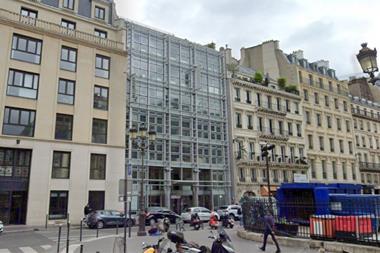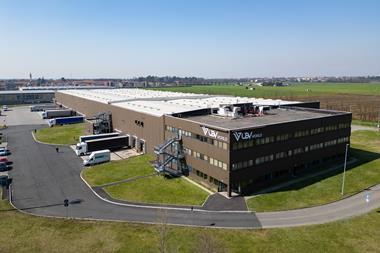Portugal's institutional investors have long been content to invest domestically because of strong returns. Now things are changing, as Adrienne Margolis reports
Portuguese institutions have been investing in real estate for 20 years. They tend to stick close to home, largely because returns have traditionally been higher than abroad, and because, until recently, legislation restricted international activity. Their appetite for domestic investment remains strong, despite a sluggish economy.
One reason is that there is a weight of money in the country, according to Sergio Brito of the Portuguese pension fund association APFIPP. "New money is still coming into property," he says. "Existing funds are being boosted and new ones are starting up."
Between 10% and 15% of pension funds' portfolios are invested in real estate, APFIPP estimates. Around two-thirds of the total is directly invested and the remainder indirectly, through property funds. This then forms a part of the total Portuguese institutional investment in real estate, which has a net asset value of around €10bn.
The main managers are property funds, normally managed by the banks. There are open ended, closed ended and special funds operating under a structure similar to that found in Germany. "The first funds seemed quite progressive at the time," Eric van Leuven of Portuguese property advisers Cushman & Wakefield says. "There are now dozens of funds, mainly open ended. The three largest, backed by banks, have about half of all the assets between them."
The main funds are ESAF, Fundimo and Millennium BCP. Their investment strategy tends to be relatively conservative, concentrating mostly in offices and, to a lesser extent, industrial and retail properties.
Along with the smaller funds, they may become more adventurous, experts say, because the Portuguese are starting to look at real estate investment beyond their own borders. Rules that restricted ¬foreign investment were changed last year, and this is encouraging interest. Previously, stock exchange regulations meant that funds could not invest outside the euro-zone, or the OECD. Also, Portuguese institutional investors could invest in assets abroad but not in companies. That has also changed.
The institutions are learning about international markets. If pension funds invest indirectly abroad, the maximum allocation is 10% of their capital. They are cautious, because they would prefer to operate in a harmonised European market, according to Filipe Amado, head of APFIPP's committee on real estate funds. He also heads Fundimo, the real estate management company of the largest Portuguese bank, CGD.
"Institutions are investing more and more indirectly in real estate funds," he says. "They get better returns at home, and the 10% limit for investments abroad is low. Once EU law harmonising investment by open ended funds is enacted, it will be easier for institutions to invest abroad."
An EU committee of experts has begun to look at harmonisation of laws for open ended funds, and Amado is hopeful that a directive could emerge as soon as next year. In the meantime, institutional investors are testing the water in central and eastern European countries. They are following Portuguese developers into such markets as Poland. "Interest is very high. It is a question of timing," Brito says.
"Some institutional investors want to start buying in other markets and in my opinion they should," Francsico Horta e Costa, head of the investment department at CBRE in Lisbon, adds. "But it may need a different generation of fund managers."
At home, investors in real estate benefit from certain tax exemptions, such as the 6.5% real estate transfer tax, and a percentage off municipal tax. But they also face some regulatory hurdles. Until recently, commercial property lease laws were a problem. Under one piece of former legislation, tenants had perpetual security of tenure and both parties had to adhere to the first 10 years of the tenancy agreement. None of this applied to shopping centres, which had their own more investment friendly legislation.
In 1995 the commercial property lease law was changed to allow fixed terms. "But the snag was the tenant got a 90-day rolling notice period so there was no security of tenure at all," van Leuven recalls.
Portuguese institutional investors had adapted to the legislation and to some extent deflected the risk in the yield, he adds. But the law was amended a year ago, so that both parties to an agreement are now free to set the terms of tenancy. The experts say that it is already making a difference, but it is too soon to tell what the ultimate impact on the investment market will be.
"There will be no change to existing contracts so it may be five years before the changes will start to have an effect," Alberto Lopez, research analyst at Axa Real Estate Investment Managers says. "It does mean that there is a lot of potential in the Portuguese real estate investment market. But economic conditions are not right at the moment because the country is trying to pull itself out of low growth. This has been a drag on rents."
And just as one problem has been sorted out, another huge stumbling block to real estate investment has emerged in the past few months, in the form of new VAT rules for property deals. Previously, a developer would pay VAT on construction, then lease the property with VAT added. A building was also sold with VAT, which the buyer paid and claimed back. A buyer had to show regular proof of VAT payments on rents to the government.
The new rules stipulate that the exemption from VAT only applies if returns on property investment are below 6.6%. "The Lisbon market is hot," Horta e Costa says. Most offices show yields over 6.6 %, so he believes that the investment market is in danger of grinding to a halt. "The problem is that if an investor bought a building a year ago with a yield of 6%, it has to be sold with VAT. The other option is to lose out by selling for a return below 6.6%.
"I do not know the solution to this," Horta e Costa adds. "No one will buy a building with VAT - the risk is too big. It seems as if the government did not know that the investment market exists."
Through the new rules, the government is trying to stamp out fraud in VAT transactions on property. In the past, some developers have sold properties to companies that they own, and signed leases at low rents. Also, fake leases were drawn up just to recover VAT.
"The state did not have a way to catch these developers, but everyone now has to suffer because of this particular problem," Horta e Costa says.
The property sector is alarmed at the new VAT rules and is trying to get them changed. APFIPP is among those lobbying the government to point out that there is a huge problem for real estate investors. "We are speaking to the authorities to see if we can make the law more friendly to us," says Amado. The government is open to reviewing the legislation, he reveals, so a solution may be possible.












